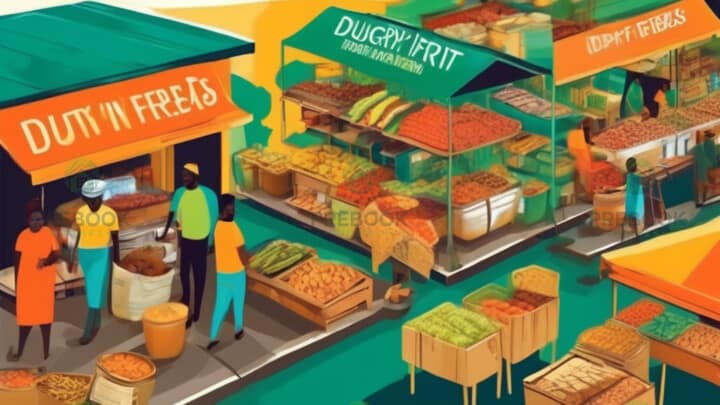
Understanding the Federal Government’s Move to Allow Duty-Free Food Imports in Nigeria
In a pivotal move to address the soaring food prices in Nigeria, the Federal Government has officially sanctioned duty-free imports of staples like rice, wheat, and beans. This policy, endorsed by President Bola Tinubu, is a strategic attempt to alleviate the financial strain on Nigerian citizens. Instituted as a short-term measure spanning 150 days, this initiative allows private sector importers to bring in essential food commodities free from duties, tariffs, or taxes.
Key commodities covered under this policy include maize, husked brown rice, wheat, and cowpeas. This initiative is bolstered by the Federal Government’s decision to import significant quantities of wheat and maize directly. By procuring 250,000 metric tons each of wheat and maize, the government aims to support small-scale processors and millers, ensuring their sustained operation and aiding in the stabilization of prices within the market.
Short and Long-Term Implications for Local Markets
The introduction of duty-free imports is poised to present both opportunities and challenges. On one hand, there is the immediate beneficial effect of potentially lower market prices and improved availability of food. This is expected to soothe the recent spikes in food costs, primarily triggered by the removal of petrol subsidies and the floating of the naira. On the other hand, the influx of imported goods could pose a significant challenge to local agriculture, potentially stunting the development of domestic food production, which is crucial for long-term food security.
Regulations and Quality Control in the Importation Process
The government has assured that all imported commodities must adhere to stringent safety and quality standards. Furthermore, a Recommended Retail-Price (RRP) will be enforced to prevent the newfound supply from leading to unfair pricing practices. These measures are critical in maintaining consumer trust and ensuring that the benefits of duty-free imports extend to the end consumers without compromising food quality.
While this approach offers a strategic cushion against immediate economic pressures, it also raises vital questions about the sustainable development of the Nigerian agricultural sector. Analysts stress the importance of striking a balance between supporting local producers and handling necessary imports as a temporary fix for broader economic issues.</
In conclusion, while the duty-free importation initiative by the Nigerian Federal Government may provide short-term relief from high food prices, its long-term impacts on local agriculture and overall food security remain a hot topic of debate. As the 180-day implementation period progresses, the effectiveness of this policy in stabilising food prices and its repercussions on local production will be critically assessed. The outcome of this strategy will significantly shape future policies in both the agricultural and economic fields of Nigeria.


